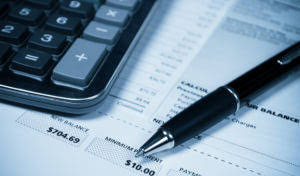Keeping Your Books in Order: The Complete Guide to Sole Trader Bookkeeping
You can’t claim travel between your home and your regular place of work. At Business Accounting Basics, we have a range of bookkeeping templates, including a cash book to record income and expenses. When starting a business as a sole trader, you’ll need to register https://www.bookstime.com/articles/bookkeeping-for-landscaping-business your business with HMRC. You’ll also need to decide whether you’ll use the cash or accrual accounting basis. Sole Trader Accounting refers to managing and reporting the financial transactions of a sole trader — essentially an individual who runs their own business.

This is not a complete list, and as a small business owner, you must decide if the costs are necessary and reasonable. HMRC has the right to disallow any claims it deems excessive or unnecessary. Any insurance related to running the business, including public liability, professional indemnity and travel insurance. If you decide you want to get a bookkeeper or accountant to help, make sure you don’t just go for the cheapest option. Do some research, make sure they’re qualified, look at reviews, ask for recommendations and speak to them in person.
Process Accruals
Moreover, you can share latest data more conveniently with others who work for your business or your accountant, or access your accounts when you’re away from base via your smartphone or laptop. Ensuring and maintaining accounting for sole trader accurate bookkeeping for sole traders has never been easier than Quickbooks. Our accessible and versatile accounting software for sole traders has been used by millions around the world to boost tax compliance.
- Once all outstanding items have been reconciled, you should have a matched balance between your bookkeeping records and bank statement.
- One of the most important things to look for when interpreting financial statements is trends.
- This will help to give you a snapshot overview of where your biggest expenses are.
- You are responsible for every aspect of the enterprise, from managing inventory to reconciling bank accounts.
As a sole trader, it is essential to record all your business transactions. Recording transactions involves the process of documenting every activity that involves money in your business. This process helps to keep track of cash inflows and outflows, which allows you to monitor the financial health of your business. Accurate record-keeping not only helps you comply with tax laws but also enables you to make better-informed financial decisions for your business. It also makes it easier to identify potential issues such as write off bad debt or spot opportunities where you can improve cash flow.
Queer-owned Small Businesses: How To Celebrate LGBTQ+ History Month And People All Year Round
That way, you’ll have a better idea of how much you owe in taxes before the end of the financial year and can plan accordingly. It’s essential to be proactive about your tax obligations to avoid any penalties or interest charges for late payment. This will include accounts such as revenue, expenses, assets, liabilities, and equity. You should also consider the tax laws in your country when setting up your chart of accounts. Many bookkeeping software solutions offer automation features that can eliminate the need for manual data entry and reconciliation.
Seeking professional assistance when needed is an essential tip for effective sole trader bookkeeping. As a small business owner in Australia reconciling bank accounts alone may not always be practical because it often requires expertise outside their area of specialty. However, you need to track all sales, invoices, and payment inflows to generate crucial financial statements. Careful tracking of accounts payable helps plan supplier payments properly.
Leave a reply →